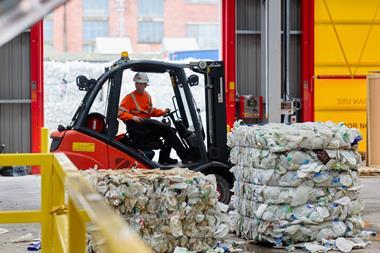The Engineering and Physical Sciences Research Council (EPSRC) outlines the opportunities for chemists offered by its new delivery plan
The Engineering and Physical Sciences Research Council (EPSRC) outlines the opportunities for chemists offered by its new delivery plan
As the UK faces increased environmental, social and economic challenges, it is imperative that we, as a science community, pull together to help overcome them. EPSRC wants to ensure UK scientists and engineers are best placed to tackle these challenges head-on.
To meet this goal we have made changes to our strategy, funding mechanisms and structure over the past three years. In consultation with the RSC, the wider research community, industry and our specialist advisory bodies, we have taken some difficult decisions, but decisions we believe will create the environment for UK science to lead the world in fundamental research and in tackling global issues.
A vital discipline
We will be redoubling our efforts to communicate these changes clearly to the community, and we will continue to listen, evolve and improve our approach as we move forward. Chemistry is, and will remain, a vital discipline, not only to EPSRC’s plans, but to ensuring we overcome the real world challenges facing the UK.
Success rates and funding levels have fallen slightly in responsive mode. This is due to a number of factors including an increase in applications, a new focus on global issues and because most of our 18.6 per cent increase in funds is supporting the valuable transition to funding the full economic costs of research. But this is a shift, which whilst slightly reducing opportunities in responsive mode, has created more opportunities for the chemistry community in other areas.
Within our three-year delivery plan, we have identified four mission programmes: Energy; Towards next generation healthcare; Digital economy; and Nanotechnology through engineering to application.
Chemistry has already made significant contributions to the Energy mission programme, including the Supergen consortium on energy storage. In our first nanotechnology grand challenge earlier this year, three out of the five funded projects had substantial involvement from chemistry departments.
Increased flexibility
The introduction of larger platform and programme grants across our entire portfolio will provide increased continuity and flexibility - giving research teams the ability to tackle more ambitious projects supported by the resources and time they need.
We have also developed strategic partnerships with leading companies, including GlaxoSmithKline, AstraZeneca and Pfizer, that will boost collaborative funding in chemistry and across our remit.
Our First Grant scheme continues to provide support for early-career researchers. However, lifting the financial cap for this scheme, which has increased the average grant value, and a significant increase in applications this year, has contributed to a fall in success rates. We are currently looking at ways to address this situation and to provide both flexibility and volume of support, balanced against other investment priorities. Funding is also available to early-career researchers through our fellowship programme, and, as part of our commitment to supporting the next generation of researchers, we are currently commissioning new centres for doctoral training.
Through this broad and varied portfolio we will sustain a healthy research base in all disciplines and deliver research to tackle major domestic and global issues. These were the two objectives set down for us in the government’s 2004 Science and Innovation white paper. And the two goals are completely compatible - we want high-quality, globally competitive research that will lead to a high-level of impact on society as a whole.
Blueprint for success
With consultation, these objectives framed our Strategic Plan and our three-year Delivery Plan, which formed part of our submission to the government’s 2007 spending review and is now our future blueprint for success.
Our budget was increased, and covers the introduction of ’full economic costs’ - a move that should increase sustainability of university research departments. When inflation is taken in to consideration, we anticipate there will be a slight reduction in the overall volume of research we can support during the spending review period.
As we approach the next spending review, it will be up to all of us to build a strong case for sustained, and increased, government support for science. It will be a tough challenge, both in terms of competition for funding and in terms of the science needed to tackle the issues we all face in energy, health and social care, economic stability and prosperity. It will require a willingness from all of us to change and adapt working cultures.
But it is also an exciting time, with opportunities for UK science - especially the chemistry community - to make a lasting difference. We have begun a dialogue with the community to identify a number of grand challenges in chemistry and chemical sciences drawing on the strengths of the UK communities. EPSRC will continue to work hard, in partnership with researchers, and industry, to deliver policies that give UK science the best chance of success. We are looking forward to next year’s international review of chemistry which will help to further strengthen our approach. Our ambition is to enhance the UK’s position as a world leader in science and engineering, with the capability to enact lasting change. Only with the full support of the chemistry community will we succeed.
Lesley Thompson, Research base director, EPSRC












No comments yet